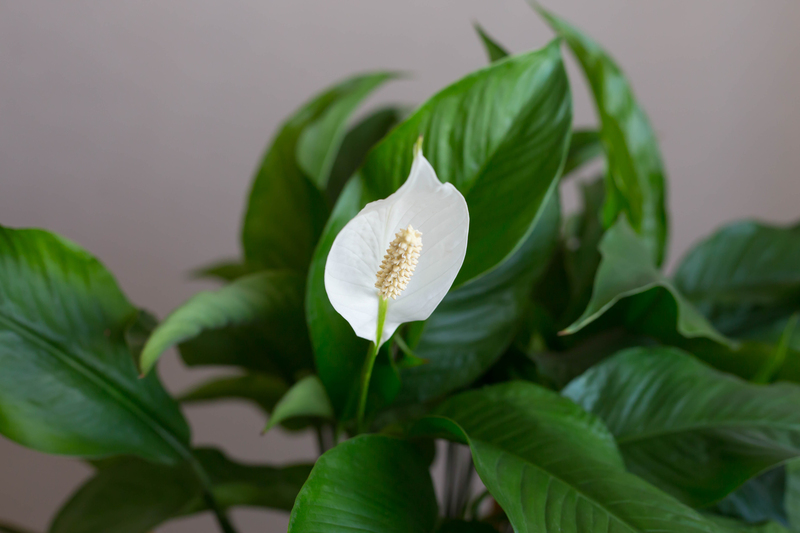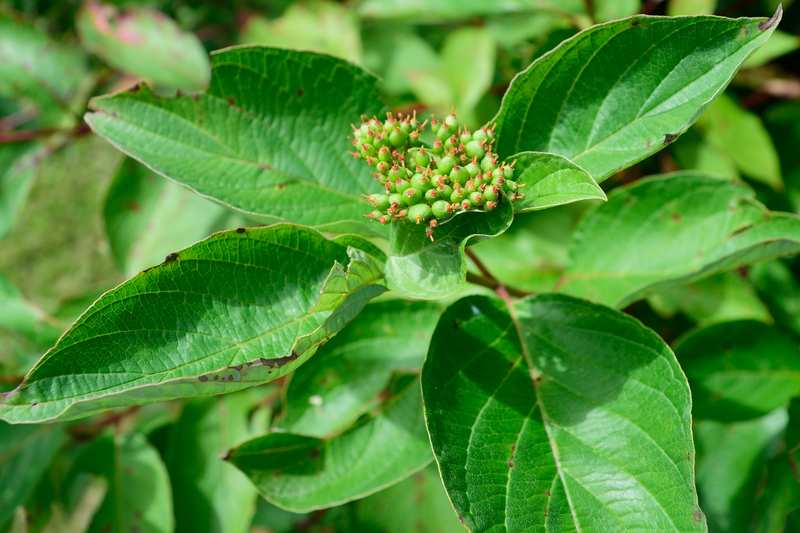9 Foundational Tips to Help Beginners Flourish in Gardening
Posted on 24/05/2025
9 Foundational Tips to Help Beginners Flourish in Gardening
Becoming an adept gardener doesn't happen overnight. However, with a dash of patience and the right advice, anyone can develop a thriving garden filled with lush greenery and vibrant blooms. If you're new to gardening, it's essential to build a solid foundation. Below, we unveil 9 essential gardening tips to help beginners flourish, foster healthy plants, and enjoy a rewarding gardening journey!
1. Start Small and Simple
One of the best gardening tips for beginners is to start small. While it's tempting to create a massive garden from the get-go, a modest approach will teach you the fundamentals, prevent overwhelm, and save you both time and money.
- Begin with a few easy-to-grow plants: Lettuce, tomatoes, marigolds, and herbs are perfect for novices.
- Container gardens are a fantastic starting point, requiring minimal space and allowing for easy adjustments.
- Avoid buying too many plants at once; it's better to master care for a handful than to stress over dozens.
As your confidence and skill set grow, you can gradually introduce more varieties and expand your gardening space.

2. Choose the Right Location
Location is a pivotal aspect when cultivating a healthy garden. Where you place your garden directly impacts your plants' health and productivity.
- Sunlight is key: Most vegetables and flowering plants need at least 6-8 hours of full sun daily.
- Observe your yard: Watch the light and shade patterns throughout the day before deciding the best gardening spot.
- Proximity matters: Situate your garden near your house for easier maintenance and watering.
Taking time to select the perfect spot will greatly increase your chances of flourishing in your gardening venture.
3. Prioritize Quality Soil
Soil is the foundation of every successful garden. Poor soil leads to lackluster growth and unhealthy plants. Understanding your soil type is crucial for gardening success.
- Test your soil for pH and nutrient levels with a home kit or by consulting local experts.
- Enrich your soil with organic matter like compost or well-rotted manure.
- If your ground soil is problematic, opt for raised beds or containers filled with quality potting mix.
Investing early in nutrient-rich, well-draining soil helps beginners avoid common garden pitfalls later on.
4. Water Wisely and Consistently
One of the most common mistakes made by beginner gardeners is improper watering. Both overwatering and underwatering can harm your plants.
- Check soil moisture before watering. Insert your finger into the soil up to the first knuckle--if it's dry, it's time to water.
- Water in the early morning or late afternoon to reduce evaporation and disease risk.
- Deep, infrequent watering is usually better than shallow, daily sprinkles because it encourages strong root growth.
For a smart start, consider using mulch to retain soil moisture and reduce evaporation, which is vital for beginner gardening success.
5. Learn About Your Plants' Needs
Understanding what each plant needs is at the heart of a flourishing garden. Every plant has unique requirements for sunlight, water, and nutrition.
- Read plant labels and seed packets for planting depth, spacing, and care instructions.
- Research local planting calendars to ensure you are growing the right plants at the right times.
- Be aware of different plant categories: annuals, perennials, succulents, or vegetables - each with their special needs.
Catering to these differences ensures a more vigorous, productive garden--key for all successful gardening beginners.
6. Get Familiar with Garden Tools and Care
Having the right tools makes your gardening experience much smoother and more enjoyable.
- Basic tools for beginners include a hand trowel, pruners, gloves, a watering can, and a spade.
- Keep all tools clean, sharpened, and stored in a dry spot to prolong their life.
- Learn how to use each tool properly to avoid damaging plants or injuring yourself.
A small investment in quality tools pays off through years of efficient gardening.
7. Start Composting Early
Composting isn't just for seasoned gardeners. It's an eco-friendly way to recycle garden and kitchen waste, creating rich, nutrient-dense material that will supercharge your plants.
- Set up a simple compost bin or pile in a convenient corner of your garden.
- Add green materials (vegetable scraps, coffee grounds, grass clippings) and brown materials (dry leaves, cardboard, straw) for balance.
- Turn your compost pile regularly and keep it moist but not soggy.
Composting reduces waste and enriches your garden soil--two huge benefits for anyone eager to thrive in gardening as a beginner.
8. Monitor for Pests and Diseases
Pests and diseases can quickly derail a beginner gardening project. Keeping an eye on your plants helps catch problems early before they become overwhelming.
- Inspect plants regularly for signs of damage or unusual markings.
- Encourage beneficial insects like ladybugs and bees, which control harmful pests.
- Remove diseased or infested plants promptly to prevent spreading issues.
- Use organic controls--such as neem oil or insecticidal soap--before turning to chemical options.
Prevention and early detection are vital for beginners wishing to achieve flourishing, resilient gardens.
9. Keep Learning and Stay Patient
Perhaps the most important of all gardening tips for beginners is to approach your gardening journey with curiosity and patience. Every gardener encounters setbacks--what matters is perseverance and ongoing education.
- Read gardening books and websites to gain new insights.
- Join local gardening clubs or online forums to share experiences and seek advice.
- Record your successes and setbacks in a gardening journal--you'll be surprised at what you learn over time.
A growth mindset helps beginners flourish not just as gardeners, but as lifelong lovers of the land.
Additional Beginner Gardening Advice
Understanding the Importance of Seasons
One often overlooked aspect for new gardeners is the impact of growing seasons. Most plants have distinct growth periods, and success largely depends on timing your planting and harvesting accordingly.
- Spring: Ideal for cool-season crops and flower bulbs.
- Summer: Focus on heat-loving vegetables and annuals.
- Fall: Perfect for establishing perennials and sowing winter greens.
- Winter: Plan, design, and prep your garden for the next cycle.
Paying attention to seasonal shifts helps maximize yields and minimizes disappointment--a key way to excel in home gardening.
Leverage Technology and Resources
Modern gardeners can lean on technology to make their experience more successful from the start. Mobile apps help with plant identification, care reminders, and pest spotting. Online gardening communities on platforms such as Reddit, Facebook, or regional gardening forums provide valuable advice tailored to your specific area.
Celebrate Your Progress
*Don't forget to enjoy each milestone.* Whether it's your first sprout, a vase of hand-grown flowers on the table, or a homecooked meal featuring your harvest, each small success is a step toward flourishing as a confident, passionate gardener.

Conclusion: Nurture Your Passion, Watch It Grow
Gardening is an ongoing learning experience--one that rewards curiosity, care, and consistency. By following these 9 foundational gardening tips designed for beginners, you lay the groundwork for a beautiful, productive space, and a journey filled with growth.
Remember, every experienced gardener was once a beginner. Take the leap, nurture your plants, and soon you'll see your efforts blossom--both in your garden and in your knowledge.
Happy gardening!
Frequently Asked Questions
- What are the best plants for beginner gardeners?
Some of the easiest starter plants include basil, mint, marigolds, tomatoes, lettuce, sunflowers, and pansies--these are hardy and forgiving for those new to gardening. - How do I know if I'm overwatering or underwatering?
Check soil moisture regularly. Most plants prefer soil that's slightly moist but not soggy. Wilting and yellowing leaves may indicate overwatering, while dry, crispy leaves can mean underwatering. - Do I need a lot of space to start gardening?
No! Container gardens, window boxes, and raised beds make it easy to begin gardening even on balconies or patios. - How important is compost for a beginner gardener?
Compost enriches the soil and reduces the need for chemical fertilizers, making it an ideal addition for any beginner looking to cultivate a flourishing garden.
Explore More Resources on Gardening:
- Beginner's Guide to Gardening - Gardener's Supply
- RHS: Gardening for Beginners
- The Old Farmer's Almanac: Gardening Articles
With these foundational strategies and resources, every aspiring gardener can build knowledge, gain confidence, and thrive as they cultivate their green sanctuary. Remember: the key to a flourishing garden is a willingness to learn, a little patience, and lots of love for your plants.
Latest Posts
Designing a Bark-Friendly Backyard for Nature Lovers
Reinvent Your Green Haven: Create Mesmerizing Garden Seating Arrangements
Unleashing the Secrets of Herb Growing

